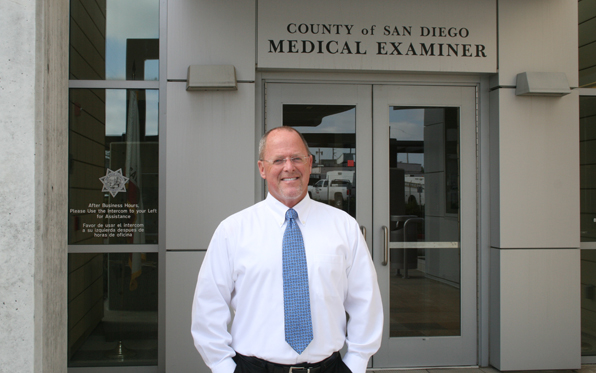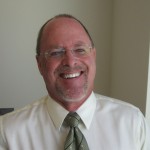 Does coroner and medical examiner office’s need a chaplain program? What benefit could it have for your staff, your community, and the families you serve?
Does coroner and medical examiner office’s need a chaplain program? What benefit could it have for your staff, your community, and the families you serve?
Traditionally, a chaplain is a minister, such as a priest, pastor, rabbi, imam or lay representative of a religious tradition, attached to a secular institution such as a hospital, prison, military unit, school, police department, university, or private chapel. Though originally the word “chaplain” referred to representatives of the Christian faith, it is now also applied to people of other religions or philosophical traditions–such as the case of chaplains serving with military forces and an increasing number of chaplaincies at American universities. In recent times, many lay people have received professional training in chaplaincy and are now appointed as chaplains in schools, hospitals, universities, prisons and elsewhere to work alongside, or instead of, official members of the clergy. The concept of “generic”, “multi-faith”, “secular” and/or “humanist” chaplaincy is also gaining increasing support, particularly within healthcare and educational settings.
Why a Chaplain
Having an active chaplain working with your agency can not only add to the well being of investigators, but can be instrumental in developing programs and services for victim’s families where otherwise underserved. Many law enforcement and fire departments have a chaplain programs in place to some degree; whether full or part time. However, coroners and medical examiners generally do not, and rarely cross the lines between agencies for this type of assistance. But why not?
The San Diego County Medical Examiners office is leading the way in the area of chaplaincy by provided services to staff as well as the community. Joe Davis, the full time volunteer chaplain, has organized and impelled several outstanding programs; such as the Bereavement Center, The Beyond the Caution Tape Program, and the Helping You Get Through book.
Bereavement Center
A sudden and tragic loss often accompanies the need to make very serious decisions while still suffering from the disbelief of what has happened. These decisions may include using services with which you are unfamiliar and involve matters that you have not previously considered. It is our hope that we can help ease your burden in some small way by providing information that may be helpful to you now and in the coming weeks. Our thoughts and prayers are with you during this difficult time.
The San Diego County Medical Examiner Bereavement Center partners with The Center for Compassionate Care of the Elizabeth Hospice in order to be a support to those that have experienced a sudden and traumatic death in the family and provides free services such as licensed counseling, financial and credit counseling and credit services. We also refer services for Crime Victims Compensation, various survivor support programs for homicide, sudden infant death, suicide and general bereavement.
Other resources:
- Therapy Changes
- Survivors of Violent Loss Program
- Jenna Druck Center
- Jewish Family Service
- Family Focus Christian Counseling
Beyond the Caution Tape
Beyond The Caution Tape is a heavy hitting program is a unique opportunity to literally take offenders and at risk young people, Beyond The Caution Tape and show them real and actual consequences others have suffered from the same risky behavior the offenders have shown.
Beyond The Caution Tape (BTCT) will cover the consequences of risky behavior including reckless driving, drug and alcohol use, suicide, violence, accidents and gang affiliation. BTCT also includes an educational tour of the San Diego County Medical Examiner’s office where participants will be exposed to the covered bodies of people who died as a result of the very same behaviors presented during the class. This high impact class will also show participants where bodies are brought in and stored while awaiting their grieving families to make funeral arrangements.
This Episode’s Guest
 Joe Davis has served as chaplain for the San Diego County Medical Examiner since 2000 and the Sheriff since 2003. In this role, Joe serves the entire ME staff with the everyday stress of dealing with sudden, unexpected and traumatic death. He assists the investigators in the death investigation and often times does the death notification to the family. He is also the Executive Director of the Bereavement Center at the ME’s Office, which is only one of four programs like it in the nation. Joe is also the family liaison for the San Diego Eye Bank, the San Diego County Tissue Bank and the U.C. Irvine Brain Research Program. He is also the Executive Director of DUNAMAI Ministries, which facilitates the Bereavement Center program and on the Board of Directors for the Sheriff’s Dept. Chaplaincy Program. He is also the creator of the Beyond the Caution Tape Program which shows offenders the real and actual consequences others have suffered from the same risky behavior the offenders have shown. Joe’s educational background includes a Bachelors of Biblical Ministry from the Horizon Bible Institute and is a Certified Trauma Services Specialist with the Association of Traumatic Stress Specialists. He is also a member of the San Diego County Critical Incident Stress Response team, the American Red Cross Community Crisis Chaplain’s Response team, International Conference of Police Chaplains and attends Calvary Chapel in Santee, Ca. He has lectured for the American Red Cross Spiritual Care Training, the Horizon Bible Institute, Azuza Pacific University, the US Border Patrol and the Horizon school of Evangelism.
Joe Davis has served as chaplain for the San Diego County Medical Examiner since 2000 and the Sheriff since 2003. In this role, Joe serves the entire ME staff with the everyday stress of dealing with sudden, unexpected and traumatic death. He assists the investigators in the death investigation and often times does the death notification to the family. He is also the Executive Director of the Bereavement Center at the ME’s Office, which is only one of four programs like it in the nation. Joe is also the family liaison for the San Diego Eye Bank, the San Diego County Tissue Bank and the U.C. Irvine Brain Research Program. He is also the Executive Director of DUNAMAI Ministries, which facilitates the Bereavement Center program and on the Board of Directors for the Sheriff’s Dept. Chaplaincy Program. He is also the creator of the Beyond the Caution Tape Program which shows offenders the real and actual consequences others have suffered from the same risky behavior the offenders have shown. Joe’s educational background includes a Bachelors of Biblical Ministry from the Horizon Bible Institute and is a Certified Trauma Services Specialist with the Association of Traumatic Stress Specialists. He is also a member of the San Diego County Critical Incident Stress Response team, the American Red Cross Community Crisis Chaplain’s Response team, International Conference of Police Chaplains and attends Calvary Chapel in Santee, Ca. He has lectured for the American Red Cross Spiritual Care Training, the Horizon Bible Institute, Azuza Pacific University, the US Border Patrol and the Horizon school of Evangelism.
email: joe.davis@sdcounty.ca.gov
Phone: 858-694-2818
coroner,police training, darren dake,sheriff,deputy,coroner association,murder scenes,auto fatalities,csi,first responders,autoerotic fatalities,become a coroner,forensic science crime scene investigation,forensic science crime,scene investigator,forensic training,forensics training,how to be a crime scene investigator,how to become a death investigator,how to become a medical examiner,how to become a medical examiner investigator,medical examiner investigator training,medical investigator training,medicolegal death,medicolegal death investigator training,murder scenes,pictures of murder scenes,murder,real murder crime scenes,traffic deaths,traffic fatalities,what does it take to be a coroner,what does it take to be a criminal investigator,firefighter,fire training,firefighter training,autoerotic fatalities,become a coroner,coroner information,crime scene clean up training,crime scene cleaning training,crime scene cleanup training,crime scene investigation,crime scene investigation classes,crime scene investigator courses,crime scene investigator school,crime scene jobs,crime scene photography,crime scene photography training,crime scene technician,crime scene technician training,crime scene training,criminal investigation,criminal investigator,criminal justice,criminal justice forensic science,criminal justice forensics,criminal scene investigation,death crime scenes,death investigation training,death investigator training,death investigators,forensic death investigator,forensic investigator,forensic photography
1 comment on “Why a Chaplain”
Leave a Reply
You must be logged in to post a comment.

Really enjoyed Joe’s insight and contribution.